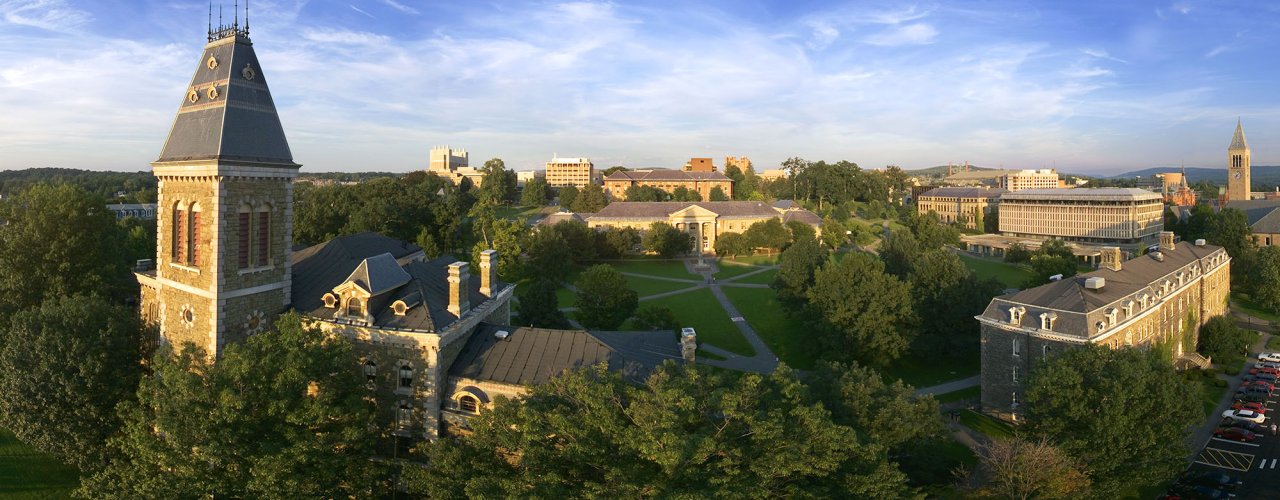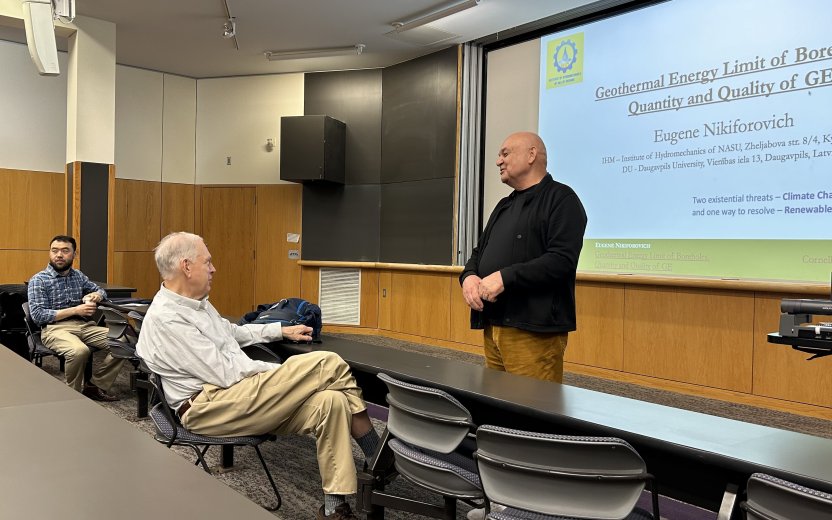First Remote IIE Fellow Visits Cornell
Eugene Nikiforovich, a fluid mechanics expert from Ukraine, researches geothermal energy and its properties—work he has been able to continue with support from Cornell since leaving Kyiv two years ago.
A visiting professor at Daugavpils University in Latvia, Nikiforovich is supported by the Institute for International Education’s Scholar Rescue Fund (IIE-SRF) and Cornell. He is the first IIE-SRF fellow to work remotely from the supporting institution—an idea Cornell proposed and pioneered with IIE. The arrangement has allowed him to apply his work locally in eastern Europe while collaborating with international partners.
"It was a good opportunity to continue my research in rather comfortable conditions,” said Nikiforovich. “The war has not interrupted my usual style of research. And of course, it's very nice that the International Institute of Education provides me financial support to participate in different international conferences."
He has presented his research at conferences in Denmark, Germany, Poland, Spain, and the U.S. over the two years of the fellowship. In a weeklong visit to Cornell’s Ithaca campus in April, he shared his expertise and experience with faculty and students and laid the groundwork for future collaborations.
The visit included meetings with potential collaborators Jeffrey Tester, David Croll Sesquicentennial Fellow and Professor of Engineering, and Max Zhang, Irving Porter Church Professor of Engineering; a College of Engineering seminar presentation; a tour of Cornell’s Lake Source Cooling facilities and Cornell University Borehole Observatory; and a visit to a Ukrainian language class.
"My work has a lot of overlap with Jeffrey and Max," said Nikiforovich. "Our research interests are very close, and now we are going to join our efforts. I am interested in shallow geothermal energy, and they are interested in deep geothermal energy. [Cornell] has a very exciting project about the heating of campus using this model, and it’s very close to my activity in Ukraine connected with the decarbonization of the energy sector."
"Despite the war in Ukraine," he said, "I continue to make my basic research. I continue to make my project international due to the large help of my colleagues from abroad."


